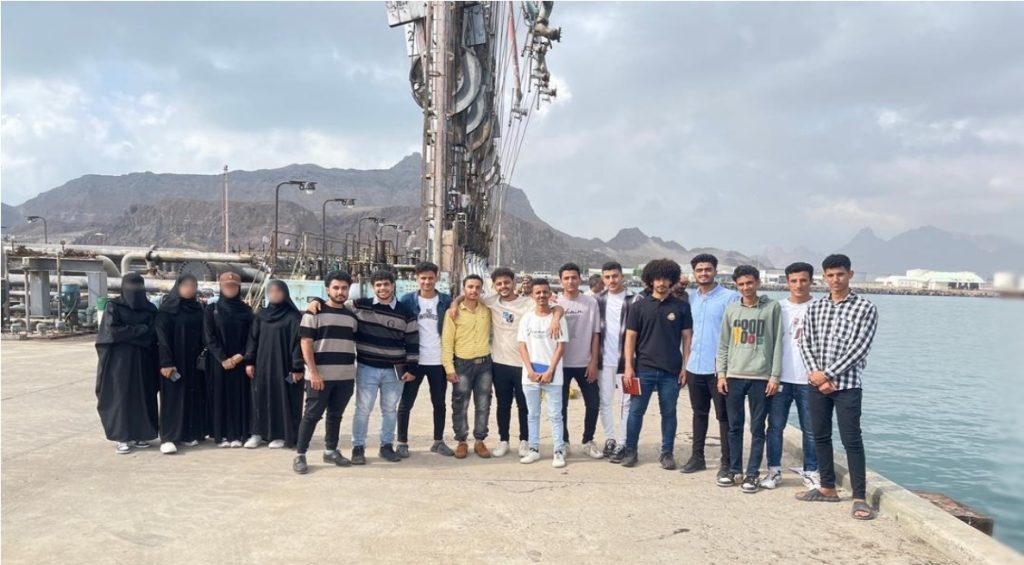Students of the Oil and Gas Engineering Program at the College of Engineering and Computer Science at the University of Science and Technology - Main Center, Aden, carried out a field visit to the Aden Refinery Company.
The field visit represented a training course for students at the Aden Refinery Company; this was in implementation of the practical aspect that the College of Engineering and Computer Science attaches the utmost importance to in order to provide students with applied knowledge of the oil refining process and laboratory tests of petroleum derivatives; this was in order to achieve the principle of linking the theoretical aspect with the practical aspect, which the University of Science and Technology is keen to achieve in the courses of the Oil and Gas Engineering Program.
To achieve the best benefit from the practical application, the students were divided into two groups, for a period of two weeks for each group. The first group went down on Sunday, 8/4/2024, followed by the second group on Tuesday, 8/27/2024.
The students were received by Engineer Zakaria Al-Saqqaf, who accompanied them during the training period.
In the first week, we learned about oil refining units, which are essential processes in which crude oil is processed, the desired materials are extracted from it, and converted into products suitable for consumption. The processing is done through a set of operations, which are the primary treatment process, followed by the distillation process, then the specification improvement process, in which derivatives are prepared for the market according to international specifications. We also learned about the catalytic reforming unit to raise the octane number of car fuel, then the vacuum distillation unit, and the asphalt unit. After that, we moved to the tank field, where the specialist explained the different types of tanks in terms of their sizes and classification, according to the type of materials from which the tank is made, the pressure inside the tank, the stored material, the tank capacity, the external shape of the tank, and the function of the tank. We also learned about vertical tanks and horizontal tanks, and that horizontal tanks are used for low capacities, while vertical tanks are used for high capacities, and that vertical tanks take up less space than their horizontal counterparts, and that the effect of wind on the vertical tank must be taken into account. The specialists provided an explanation of the pipes extending from the port’s harbour to the product storage warehouses in the port area, all the way to the oil and gas facilities sector in the refinery.
In the second week, the students moved to the laboratory section, where they listened to an explanation by a laboratory specialist, starting with the Crude Oil section, and the Light Oil section. Here, the students learned about a group of tests conducted on light products, such as gasoline (car fuel), and kerosene (jet fuel). Then, they moved to the Black Oil section, where the students were explained about heavy products, such as light diesel (car and truck fuel), heavy diesel, and fuel oil (electric power station and heavy engine fuel), and how to conduct the required tests for these products.
At the end of the course, the students expressed their thanks and appreciation to the Aden Refinery Company, its distinguished staff, and the Director and staff of the Training and Development Unit at the company: Eng. Zakaria Al-Saqqaf, Eng. Saeed Habishan, and Ms. Nada.

